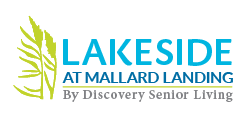In the digital age, technology offers various forms of support for individuals facing the challenges of dementia, including a range of applications designed to assist with daily tasks, improve quality of life, and provide peace of mind for caregivers. These apps for dementia can be a lifeline for those in the senior living community, offering interactive features that cater to the specific needs of individuals with memory impairments. Let’s delve into how these apps work and highlight some of the options available.
Cognitive Stimulation and Engagement
One of the key areas where apps can be particularly beneficial is in providing cognitive stimulation. Apps such as Lumosity and CogniFit offer games and activities tailored to engage the brain and potentially slow cognitive decline. These applications include a variety of puzzles and problem-solving exercises that can help keep the mind active. They are designed to be user-friendly, ensuring that even those who may not be tech-savvy can benefit from them. In the retirement community, these apps can be integrated into daily routines to provide a fun and stimulating break in the day.
Communication and Social Connection
Maintaining social connections is vital for individuals with dementia, and apps like Skype and WhatsApp enable video calls and messaging with family and friends. For those with more advanced stages of dementia, apps such as Talking Mats use symbols and pictures to help users express their thoughts and feelings when words fail them. These applications play a crucial role in the senior living community by helping to bridge communication gaps and fostering relationships despite cognitive challenges.
Daily Assistance and Reminders
As dementia progresses, the challenge of managing everyday tasks intensifies. Fortunately, reminder apps like “Remember The Milk” and “Medisafe” are specifically designed to aid those with cognitive impairments. They offer helpful alerts for crucial appointments, medication times, and daily activities. These applications are particularly beneficial as they often include functionalities that enable caregivers to oversee task completion and adherence to important routines from afar. This remote monitoring aspect is especially comforting for caregivers, whether their loved ones reside within a supportive retirement community or prefer the familiarity and comfort of their own homes.
Caregiver Support and Resources
Caregivers also need support, and there are apps designed to provide information, advice, and community connections. Apps such as CareZone and Alzheimer’s & Dementia Care give caregivers the ability to track symptoms, store health information, and access resources for managing care. These tools can alleviate some of the stress associated with caregiving by organizing vital information and connecting caregivers with a community of others who understand the journey.
The emergence of apps for dementia is a positive step forward in supporting individuals with memory impairments and their caregivers. While no app can replace human interaction or professional medical advice, these digital tools can complement care strategies and improve the quality of life for those living with dementia. For the senior living community, these apps represent an accessible resource that can offer practical help and a sense of connection, making daily life a little easier and more enjoyable for everyone involved.







